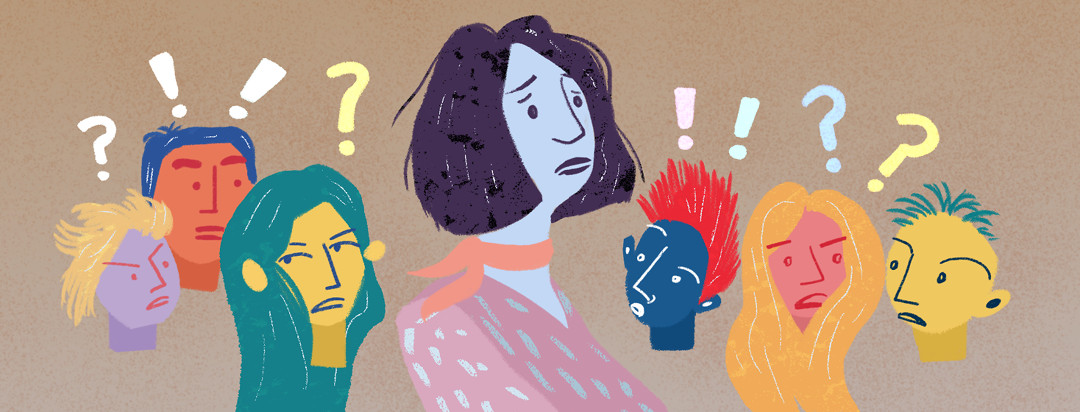You Judged Me For My Invisible Illness and You Didn't Even Know It
The other day, a small card was left on my windshield at a local shopping plaza. It read, “Hey idiot! You absolutely suck at parking! Learn how to drive you inconsiderate pr***.”
A tad aggressive for a Monday morning during the holiday season, I know.
Assumptions about me and my health
Upon finding this card, I was shocked and a little confused. My car was parked appropriately snug between the yellow lines. The only explanation undeserving of this rude card was that my car was parked in a 30-minute parking spot closest to the store. I imagine someone saw me get out as young, seemingly healthy-looking mom, grab my toddler, and carry him into the store. They probably waited 30 minutes and when I hadn’t returned to my car just yet made assumptions about me.
Maybe they thought since I looked healthy, I am healthy? Possibly, they believe the spots closest to the store should be reserved for the elderly or disabled customers no matter the signage? Perhaps if you are young and have children, you can handle parking a few rows back? Maybe they assumed my intention was to abuse the 30-minute spot solely because I am inconsiderate? Whatever their assumptions were, I can’t help but feel a bit attacked, misunderstood, and an undeniable desire to explain myself because I have an invisible illness.
What is an invisible illness?
An invisible illness is an illness that isn’t apparent from the outside, yet exists and is experienced on the inside.1Cystic fibrosis is an example of an invisible illness because on the outside someone might look relatively healthy, but on the inside they experience life-threatening progressive and serious organ damage that can limit their quality of life. Moreover, coping with infection, fatigue, pain or other draining symptoms of an invisible illness such as CF often go unnoticed behind closed doors.
The time consuming management, treatment, and airway clearance most likely go unnoticed as well beyond close family members. Before someone with CF presents themselves to the public, they have undoubtedly worked really hard just to feel “normal” that day. Would you know all that just by looking at someone with CF?
Probably not.
Why?
Because you can never know someone’s story by just looking at them.
Making decisions that protect my invisible illness
In any given day there are many little decisions someone with an invisible illness has to make to function.2 These decisions or adaptations are often necessary to improve quality of life and “optimize performance."2
Like a lot of people living with CF and other chronic and invisible illnesses, I try to park close to the entrance of the store because it’s not always easy to walk far distances. It’s even harder while lugging children, carts, or heavy bags. (The threat of an embarrassing public coughing attack spurred on by a long walk is reason enough. Trust me, those public coughing attacks are absolutely mortifying sometimes.)
It is not because we are being inconsiderate to the rest of the customers. We are making decisions to protect our health and conserve valuable energy. That’s the double-edged sword living with an invisible illness--attempting to blend in while knowing doing so often puts your health at risk.
Think before you assume
Sometimes it’s uncomfortable to have to make decisions that don't exactly fall within the expectations society anticipates from me; but my health is important too. If I don’t protect it, who will?
I just ask that before you jump to an assumption, you think. Try to give that person grace and understanding while knowing that they may have an invisible illness. Not everyone can be sorted into the clear and concise boxes they seem to belong in. I believe this is a lesson we all need to hold close and set into motion for every person we meet.
If you see a young man using a motorized scooter in the grocery store, he’s probably not taking that thing for a joyride. If someone parked in the disabled parking spot exits their car without an obvious cane or walker, it is okay. Similarly, when a young mom parks her car as close as she can to carry her toddler 15 feet into the store, maybe that is all she could manage that day because she’s still struggling, even if from the outside she doesn’t look like it.
Better yet, throw away those demeaning cards along with your judgments, and we will all be in a better place.

Join the conversation